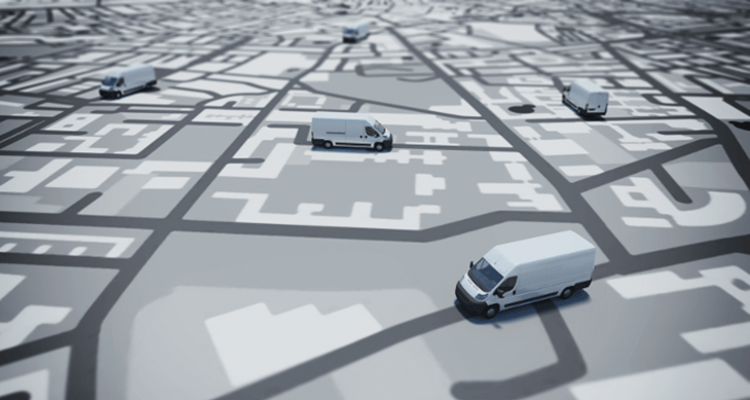In Bangladesh, traffic jams are a significant problem. This issue is worse in crowded cities like Dhaka. Ambulances often cannot reach patients on time because of the traffic. The delay caused by traffic can be life-threatening. Ambulances face challenges like congested roads, poor infrastructure, and unpredictable traffic. GPS vehicle tracking software offers a solution. It helps with navigation, real-time vehicle tracking, and faster emergency responses. Vehicle GPS tracker lets patients, drivers, and dispatchers know the exact ambulance location. This helps in choosing the quickest route to the patient.
In this article, we’ll discuss why ambulance services in Bangladesh need GPS vehicle tracking system today. We’ll also explain the technology behind GPS tracking and how it works in ambulance service.
The Challenges of Ambulance Services in Bangladesh
Bangladesh has a growing population, and the country is developing rapidly. Due to these factors, it is challenging to manage emergency healthcare systems effectively. Ambulance services face many challenges, including:
1. Severe Traffic Congestion: Dhaka is one of the world’s most crowded cities. Ambulances often get delayed for hours due to heavy traffic.
2. Unclear Routes: Many roads are not well-planned. In emergencies, it isn’t easy to navigate these roads. Without proper navigation tools, finding the fastest route becomes a big challenge.
3. Lack of Coordination: Without real-time vehicle tracking, hospitals cannot monitor ambulances. They cannot send the nearest vehicle to a patient needing urgent care.
4. Unreliable Communication: Communication between drivers, hospitals, and dispatch centers is often slow and inefficient. This causes delays in responding to emergencies.
Why are GPS tracking systems needed in Bangladesh’s ambulance services?
GPS technology can provide real-time updates and improve ambulance coordination. It makes itself a vital tool for the country’s emergency healthcare services.
How Does GPS Enhance Emergency Medical Services?
GPS vehicle tracking system app can significantly improve emergency medical services. Here’s how:
- Locate the Nearest Ambulance: Vehicle GPS tracker helps central control track ambulances quickly. It can find the nearest ambulance to a patient, whether it was booked online or by phone.
- Estimate Arrival and Turnaround Times: GPS vehicle tracking systems give real-time estimates. It is when an ambulance will arrive at the location. They also show how long it will take for the ambulance to return. This information helps families and medical teams make quicker decisions during emergencies.
- Find the Shortest Route: GPS helps drivers find the quickest and least congested routes. It is cutting down travel time and saving precious minutes in emergencies.
- Send Real-Time Data to Hospitals: Hospitals can track the ambulance’s location and speed. This helps them prepare the needed equipment and medicines ahead of time.
- Maintain the Right Temperature: Many GPS systems are equipped with temperature sensors. These sensors ensure that medical supplies and equipment stay at the right temperature. If there is any change in the temperature, the system sends an alert to the medical team.
- Receive Assistance When Needed: Modern GPS systems have emergency features. These include SOS buttons and alerts for over-speeding, sudden braking, or vibrations. These features ensure quick responses when help is needed.
These benefits highlight how GPS enhances emergency medical services. It provides reliability for both responders and families.
How GPS Tracking Transforms Ambulance Services?
Here’s how GPS vehicle tracking software can transform ambulance services in Bangladesh:
1. Real-Time Location Tracking:
VTS helps ambulance dispatchers and hospital administrators to monitor ambulance locations in real time. This leads to:
Efficient coordination between dispatch centers and hospitals. Quick identification of the nearest ambulance to a patient’s location. Better decision-making during critical situations, saving valuable time.
Example: A heart attack patient in Old Dhaka can get quick care with a GPS-tracked ambulance. The system finds the nearest ambulance and guides it through the best routes.
2. Traffic Navigation and Route Optimization:
The ability to provide real-time traffic updates is one of the standout features of GPS tracking software. GPS recommends optimized routes. It is very important for navigating Bangladesh’s congested roads.
GPS-enabled ambulances can avoid traffic-heavy areas. It calculates alternative routes instantly, bypassing roadblocks, congestion, or construction zones.
Research shows that GPS can reduce emergency response times by up to 25%. This time-saving is crucial in life-or-death situations.
3. Improved Emergency Response Time
In emergencies, every second is essential. GPS tracking systems help ambulances respond faster. How GPS helps:
- Dispatch Accuracy: Ambulances can be sent to the nearest patient. There is no need to guess which vehicle is free.
- Location Precision: GPS finds the patient’s exact location. This saves time searching for the address.
- Clear Communication: Ambulance location updates are shared in real time. Hospitals, patients, and families can coordinate better.
4. Enhancing Patient Safety and Peace of Mind:
GPS tracking improves the transparency and accountability of ambulance services. Families can track the ambulance in real-time using a mobile app or tracking software. This reduces stress during emergencies.
Hospitals can monitor the ambulance’s progress and prepare for the patient’s arrival. Any unauthorized stops or route changes can be detected immediately, ensuring patient safety.
Studies show that real-time tracking helps to build trust. It builds trust with patients and their families, making emergency services more reliable.
5. Better Resource Management for Hospitals:
GPS tracking systems help hospitals manage ambulances better. Hospitals can track fuel usage, idle times, and routes to improve operations.
Alerts for maintenance prevent breakdowns and keep ambulances in good condition. The system shows how ambulances are used, helping hospitals manage resources.
This is very helpful in Bangladesh, where healthcare resources are limited.
Case Study
During the 2024 floods in Bangladesh, ambulance services became very important. GPS vehicle trackers helped ambulances reach flood-affected areas quickly. They worked even when significant roads were flooded or blocked.
Emergency teams used GPS to manage multiple ambulances. This ensured that the most affected areas got help on time. Real-time data helped ambulances avoid delays and find the best routes.
This showed how GPS improved healthcare during disasters and saved lives.
Global Examples of GPS Tracking in Ambulance Services
GPS has improved ambulance services around the world.
In New York, response times are reduced by sending the nearest vehicle.
In London, the NHS uses GPS for better coordination during busy times.
In Bengaluru, GPS helps ambulances avoid traffic and reach faster.
These examples show how GPS saves time and lives. Bangladesh can learn from these systems to improve its healthcare.
The Future of Ambulance Services with GPS in Bangladesh
Using GPS will make ambulance services faster and more effective in Bangladesh. Key benefits include:
- Faster emergency service response by finding the best routes and nearest hospitals.
- Better access to rural areas, even with poorly mapped roads.
- GPS can be connected to hospital systems for smoother operations.
- GPS will send alerts to families, hospitals, and emergency teams. It helps them to prepare in advance.
Bangladesh is working on building a digital healthcare system. These improvements will make healthcare more efficient and save more lives.
Conclusion
Adding GPS vehicle tracking to ambulances in Bangladesh is necessary. It solves problems like traffic jams, poor routes, and slow manual dispatching.
GPS vehicle trackers help ambulances respond faster and provide better care. Families feel more secure knowing help is on the way.
Real-time vehicle tracking allows ambulances to navigate quickly and save lives. As technology improves, GPS systems will make emergency healthcare safer and faster.
Prohori, Bangladesh’s leading GPS tracking solution provider, is crucial in improving ambulance services. With its advanced tracking systems, Prohori ensures real-time location updates, optimized routes, and better fleet management. This makes ambulance services more reliable and efficient during emergencies.



